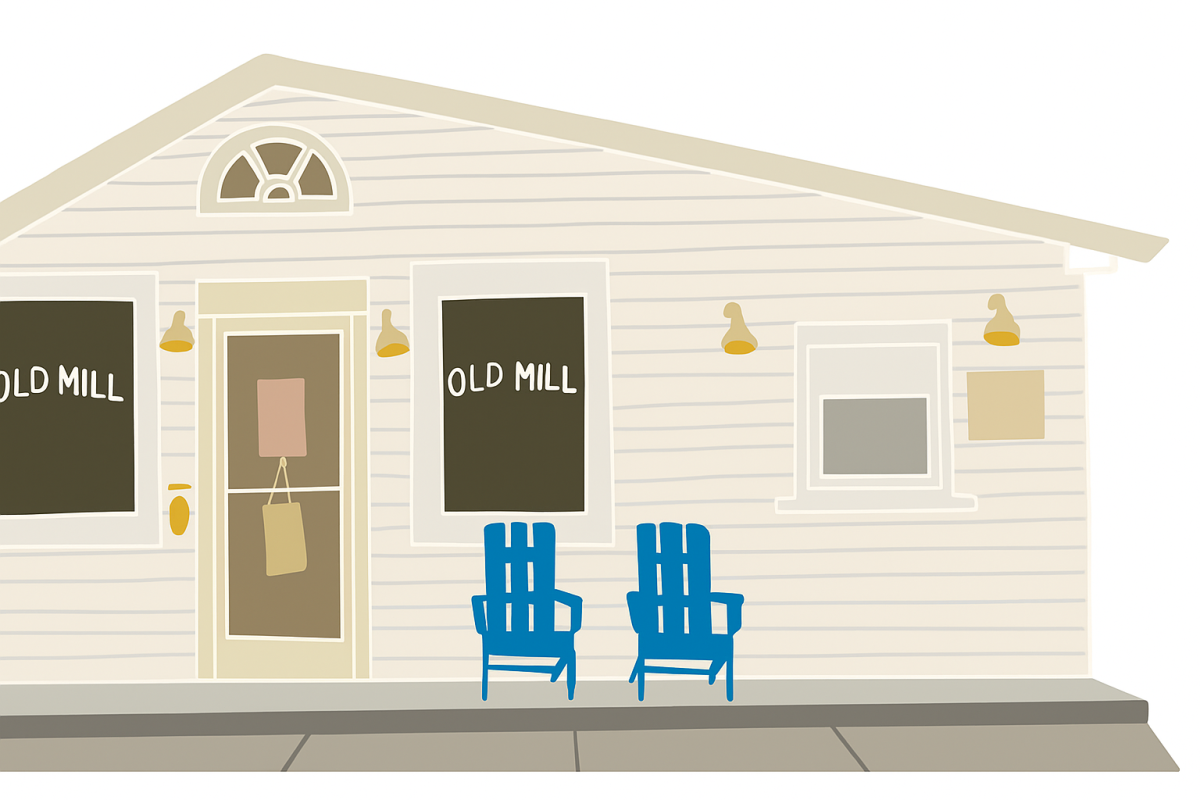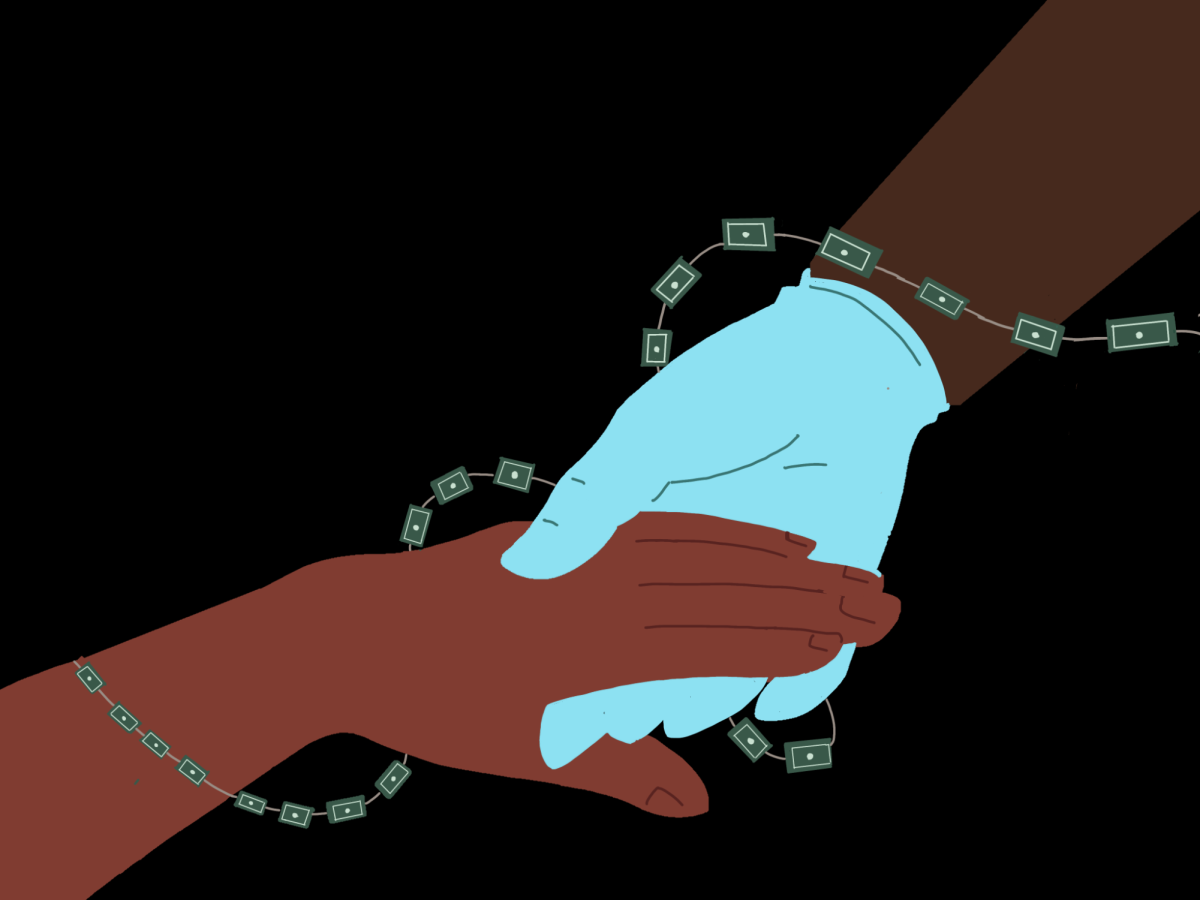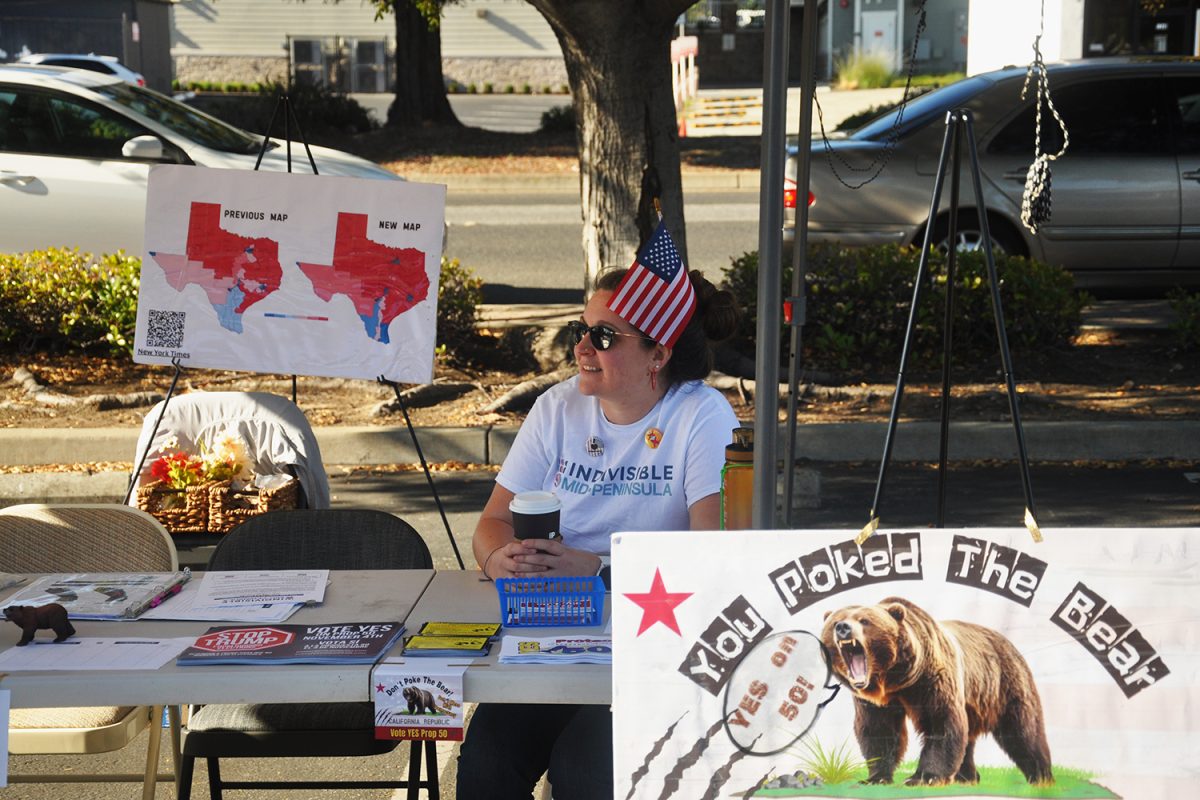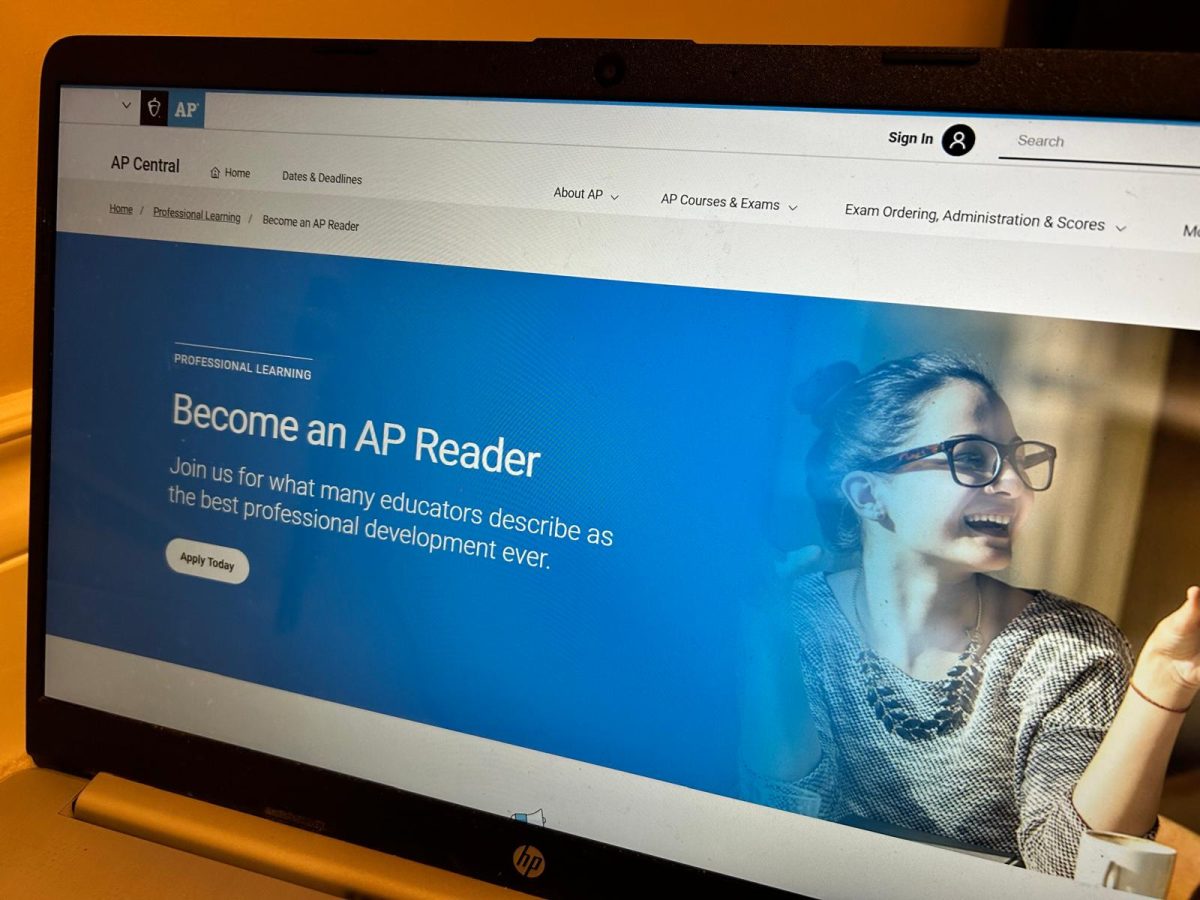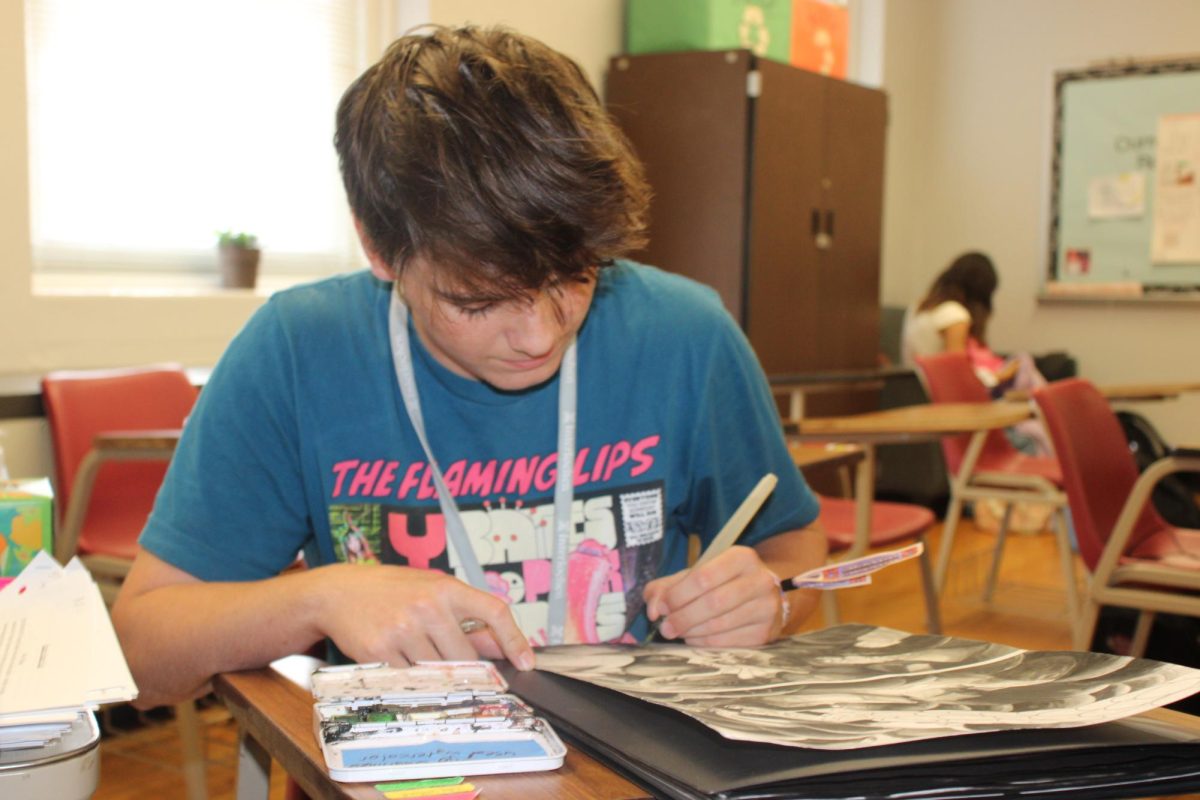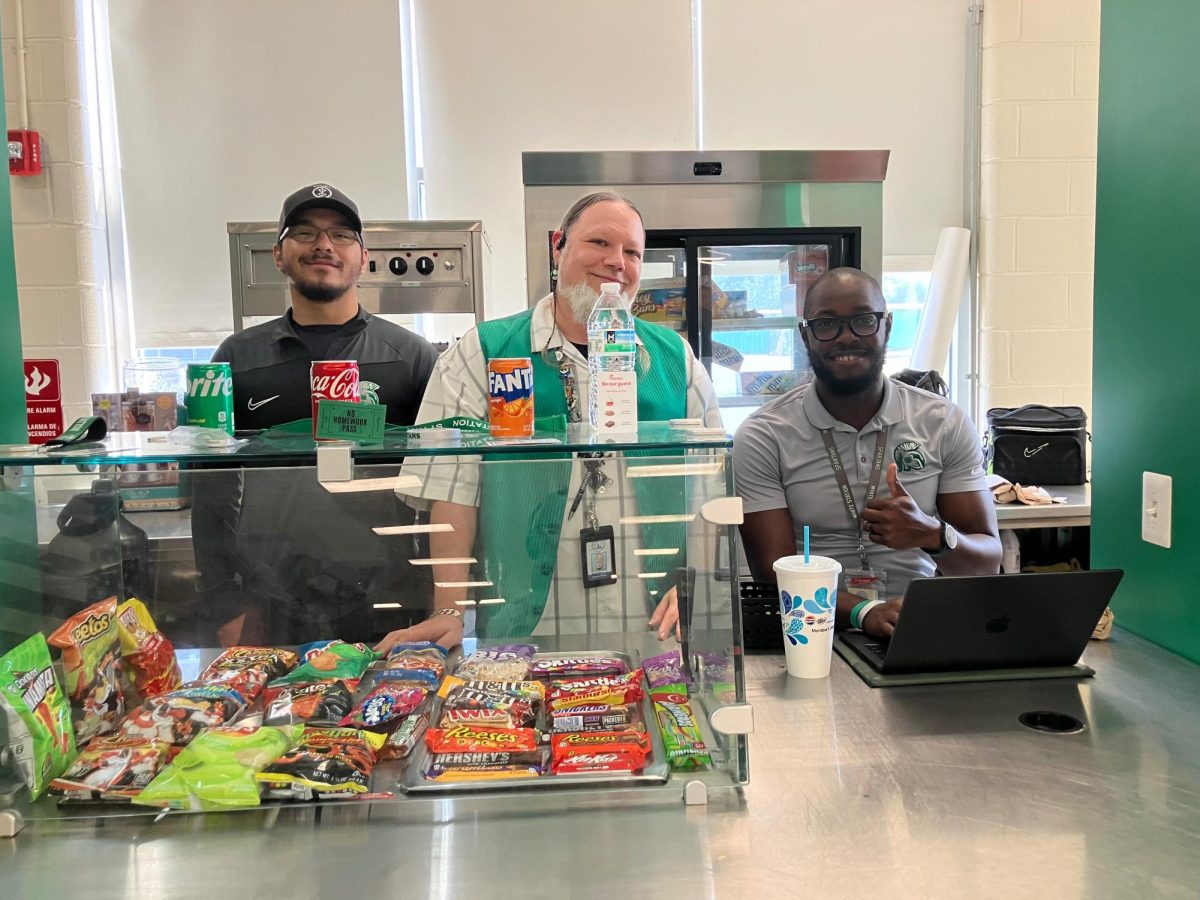OPINION: Diversity in literature is key to a more representative and compassionate community
May 18, 2023
Providing access to books with all-encompassing worldviews helps students feel seen in their school and help them build empathy for others. Schools should promote these stories for students, but their ability to do so is being threatened by the revitalized book banning movement.
Book banning is not a new phenomenon. Books have been banned for many reasons throughout the history of the United States. During the colonial era, books were banned for spreading certain religious ideas. Later, during the Civil War, books like “Uncle Tom’s Cabin” were banned for spreading anti-slavery sentiments. More recent targets for the movement have been LGBTQ+ stories. Book banners encourage the banning of books they deem “dangerous for kids”, however, usually these stories are simply about uncomfortable topics. Book banning censors classroom discussion, so that only predetermined “safe” issues can be brought up. In reality, these difficult issues are the very ones we should be discussing the most.
“Banning books is death! You have to have freedom of knowledge and when you take away books, it takes away freedom,” Manual’s librarian Christina Causey said.
Many associate the latest book banning bills with Florida, but Kentucky saw a similar bill pass rapidly through its Republican supermajority legislature this month as well. Senate Bill 5 would require school boards to create policies addressing parent complaints about the material their child is exposed to in the classroom. This is the latest bill in a list of “parent rights” legislation that would make it easier for school districts to ban books and other “provocative” classroom materials. JCPS has also had its own attempted book bannings. Parents went before the Board of Education this summer to request the removal of the book “Gender Queer: A Memoir” from JCPS schools. The board voted to keep the book in schools, however with the passing of this new legislation, such decisions may be reversed.
Kelly Estep, co-owner of local Louisville bookstore Carmichael’s, agrees that book banning can be very dangerous.
“For a child to see themselves reflected in the pages of a book, it can change someone’s life. It can save someone’s life. And I don’t feel like I’m exaggerating when I say that. I hope that we are going to be able to stop some of this from happening,” she said. “It is frustrating to see people wanting to take books and stories away.”
At Manual, Ms. Causey is already preparing for a world where school libraries would be regulated in their selections.
“I talked to another teacher today who was saying that if I ever needed to house books in their room that I could not keep on the shelf, that they were happy to take them and suffer the repercussions of that,” Causey said.
It is unfair that teachers and librarians would even have to make deals like this, or feel like their careers are being threatened, just for trying to represent all students in their literature selections.
Diverse stories help students feel represented in their school community and gain the ability to read about people who look like them or have been where they are.
“There’s, in some ways, nothing more important than a child being able to see themselves in a story,” Estep said.
Students particularly are more likely to read when they feel represented in books.
“It’s important for our books to somewhat reflect our student body and that everyone here could find a book that they would like to read,” Causey said.
The Manual library has dedicated itself to celebrating and highlighting diverse stories and authors. For example, there are displays created for Women’s History Month, Black History Month, Hispanic Heritage Month and Arab American Month.
Ms. Causey and the library have also tried to increase the number of LGBTQ+ stories as well. The most popular genres in the library are Romance, Murder Mystery, Manga and Poetry, so Ms. Causey tries to make sure that these genres in particular have a wide range of diversity.
“Everyone reads, but not everyone sees themselves represented on the page,” author and Bowling Green native Jacinda Townsend said.
“There are people who see themselves represented as a stereotype. There are people who see themselves represented in a way that doesn’t really jive with their actual experience,” Townsend adds.
This stereotyping of characters can also be dangerous. When the only experience a person has with someone different than them is in the pages of a book, reinforcing negative stereotypes or fitting characters into tropes can limit the reader’s capacity for empathy.
“I’m a single mom and I have never seen a single mom represented on the page who is anything like me or all the single moms I know,” Townsend said.
In addition to increasing the chances readers will see themselves reflected on the page, greater diversity of books also helps students to build cultural awareness and empathy.
“It’s important that we read books that show our own experiences, but also show experiences of those who are different from us. You can’t have empathy without understanding that there’s other perspectives beyond your own,” Causey said.
Books allow readers to put themselves into the pages and experience different trials and celebrations. Living vicariously through a character can help us better understand the different people around us in the real world. Books can prepare us for interactions by fostering empathy first with the characters on the page, and then with people in real life.
“We live in a world right now that feels a little lacking in empathy. Having kids have access to stories and ideas that are separate from themselves and their own experiences is really important,” Estep said.
It’s all too easy nowadays to “other” those who are different from us, and even antagonize them due to our lack of understanding. Books can help break that cycle by showing us that a hero can look a lot of different ways. Through reading we can learn to be more open to the goodness of others.
Due to the history of discrimination in the book publishing industry, these diverse stories are often harder to find.
“The publishing industry is very white and it reflects the tastes of its gatekeepers and the experiences of its gatekeepers. If you have an editor who really doesn’t know black people at all, they’re looking for stories that confirm their stereotype. So then it’s a little harder for a writer of color, a woman of color, to break through the door if you’re not telling that same old story,” Townsend said.
“In our industry, in the book publishing world, admittedly, it has been really lacking in diverse voices and there’s been a movement in the last several years to change that,” Estep said.
Estep notes that small public independent publishing companies in particular have worked to diversify the industry as a whole. However, she also believes that bookstores and libraries also play an important role in the process.
“In the last probably four or five years, especially, we are just thinking more about what books we are putting on our shelves. Who are we representing?” Estep said.
It can be hard to choose which books get to take up valuable shelf space, but these decisions can help more people feel represented in literature.
“We have a small bookstore and there are thousands and thousands and thousands of books published. So we always have to make choices, but we’re making those choices differently now. There’s just more thought about what books we are displaying, what books we are showing,” Estep said.
Estep also describes how the bookstores and libraries should serve their communities.
“Independent bookstores are deeply invested and deeply rooted in their communities. It’s sort of this two way street. What does our community need from us? And then what can we give back to the community?” Estep said.
The same two-way street model can be used in schools. It’s important that teachers and librarians not only make books available to students that reflect the student body, but also offer books that have the potential to expand students’ worldviews.
Reading can be a joyful and relaxing pastime, but it is also important to think consciously about what we are reading. By reading books that introduce us to different people and perspectives, we can foster empathy and a nuanced cultural understanding within ourselves.
This story was originally published on Manual RedEye on April 5, 2023.


